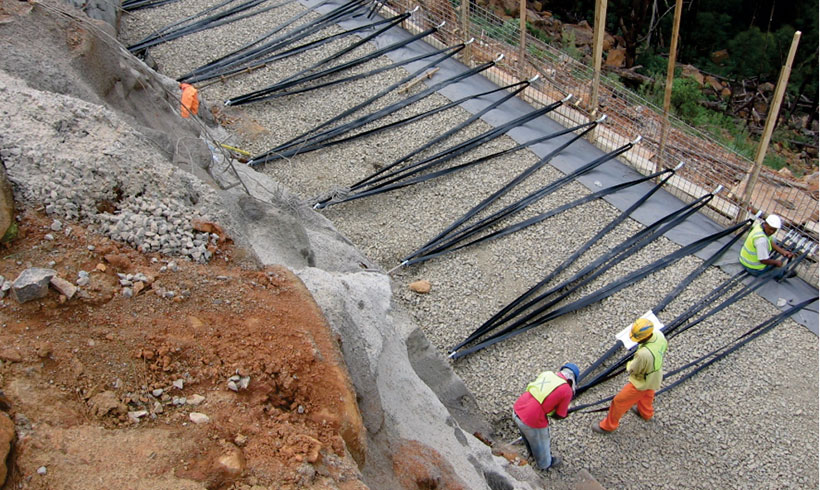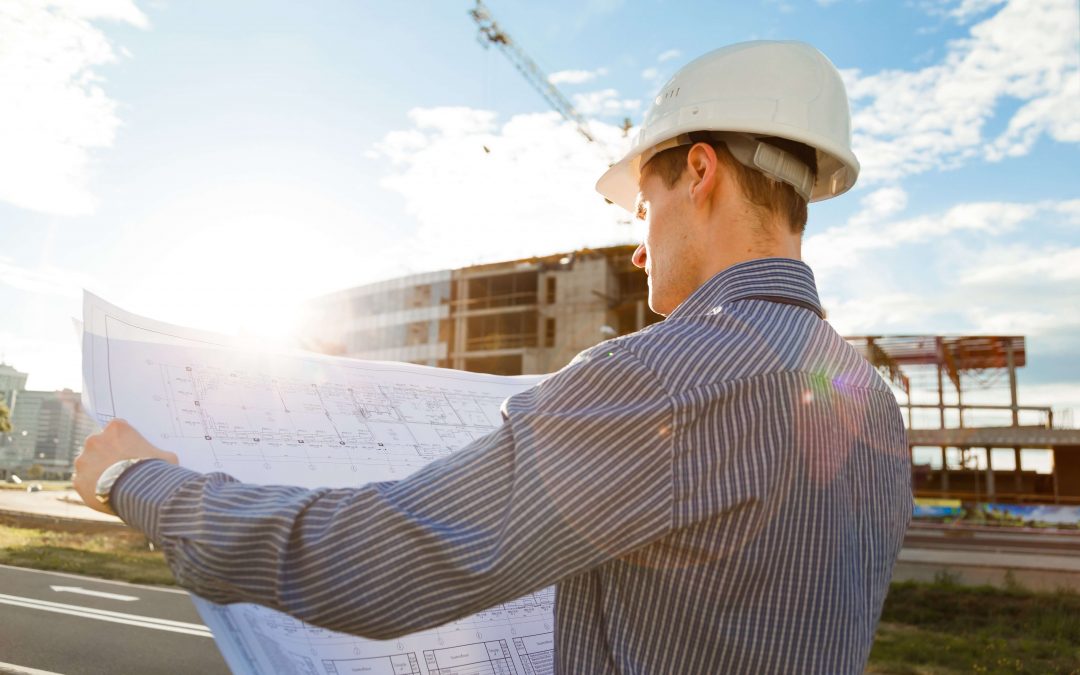How Specialized Geotechnical Engineering Solutions can Save You Time, Stress, and Money.
How Specialized Geotechnical Engineering Solutions can Save You Time, Stress, and Money.
Blog Article
10 Simple Techniques For Specialized Geotechnical Engineering Solutions
Table of Contents4 Simple Techniques For Specialized Geotechnical Engineering SolutionsLittle Known Facts About Specialized Geotechnical Engineering Solutions.Unknown Facts About Specialized Geotechnical Engineering Solutions5 Easy Facts About Specialized Geotechnical Engineering Solutions Explained
They perform site investigations, accumulate examples, do research laboratory examinations, and analyze information to examine the viability of the ground for construction jobs. Based upon their searchings for, geotechnical engineers give suggestions for foundation layout, incline security, maintaining structures, and mitigation of geotechnical hazards. They work together with various other specialists, such as architects, architectural engineers, and building and construction groups, to make sure that geotechnical considerations are incorporated into the general job style and implementation.
Structure Style: Geotechnical designers play an important function in developing foundations that can securely support the designated structure. They examine the dirt conditions and lots requirements to determine the suitable foundation type, such as shallow structures (e.g., footings), deep foundations (e.g., piles), or specialized techniques like dirt enhancement. They take into consideration aspects such as negotiation limits, bearing ability, and soil-structure interaction to develop optimum foundation designs.
Top Guidelines Of Specialized Geotechnical Engineering Solutions
Below are some kinds of geotechnical engineers: Structure Engineer: Foundation engineers concentrate on developing and examining foundations for structures - Specialized Geotechnical Engineering Solutions. They examine the dirt conditions, load requirements, and site qualities to figure out one of the most proper structure type and style, such as shallow foundations, deep structures, or specialized strategies like heap foundations
They carry out area screening, collect samples, and evaluate the collected data to characterize the dirt homes, geologic formations, and groundwater conditions at a site. Geotechnical Instrumentation Designer: Geotechnical instrumentation engineers concentrate on tracking and gauging the actions of dirt, rock, and structures. They mount and preserve instrumentation systems that monitor factors such as dirt negotiation, groundwater levels, slope movements, and structural displacements to assess performance and supply early cautions of possible concerns.
In the workplace environment, geotechnical designers make use of specialized software application tools to do calculations, create layouts, and assess data. Specialized Geotechnical Engineering Solutions. They prepare records, testimonial task requirements, connect with customers and group participants, and coordinate job tasks. The workplace setup gives a helpful environment for research study, evaluation, and collaboration with various other experts associated with the project
They frequently see job sites to conduct site examinations, analyze geotechnical conditions, and gather information for analysis. These visits involve traveling to various places, in some cases in remote or difficult surfaces. Geotechnical designers might execute dirt sampling, conduct tests, and screen construction activities to guarantee that the geotechnical facets of the job are being implemented properly.
The Only Guide for Specialized Geotechnical Engineering Solutions
Geotechnical designers additionally work in specialized geotechnical laboratories. Geotechnical research laboratory designers work thoroughly in these settings, handling screening tools, running tools, and tape-recording information.
Keeping Walls: Creating walls that keep back soil to avoid landslides and supply stability on sloped terrains. Embankments and Earthworks: Designing embankments for roads, railways, and dams to ensure they remain steady under stress and anxiety. The mining sector relies greatly on geotechnical design to make certain the security and durability of its operations.
With this in mind, we have created our program to prepare pupils for success. The Geotechnical Design program at the College of Delaware supplies possibilities for sophisticated study and study in: Dirt and rock mechanics Soil-structure communication Integral modeling Computational geomechanics Structure and earth frameworks engineering Ground enhancement Slope stability and landslide stablizing Liquefaction of dirts and quake design Laboratory characterization of geomaterials and dirt support Environmental geotechnics Offered the solid requirement for renovation to our nation's infrastructurethe American Society of Civil Engineers gave the united state
Geotechnical engineering is a branch of civil engineering; however, it includes making use of scientific methods and principles to gather and translate the physical residential or commercial properties of the ground. Geotechnical designers are associated with all phases of the style of frameworks, from idea to building. Their job is vital in the design and preparation procedure as they examine the stability of dirt, clay, silt, sand, and rock, prior to building and construction commencing.
The 10-Minute Rule for Specialized Geotechnical Engineering Solutions
This is followed by a ground examination based upon the searchings for of the workdesk research study and includes test matching and sampling to uncover any kind of prospective problems. Geotechnical engineers function within multidisciplinary teams, supported by intermediate and junior designers along with by CAD professionals. As a senior geotechnical designer on a hydro plant job, jobs may consist of Read Full Report taking part in technical testimonials (e.g., peer testimonials), tailings clog examinations, dam safety reviews, and other researches connected to the style and construction of mine waste facilities.
While some professionals specialise entirely in geotechnics, others may function under titles like design geologist or ground designer within comparable capacities. As a geotechnical designer, you'll require to: develop and keep connections with clients and other professionals involved in the website, throughout each projectmaintain safety criteria on site bear in mind expense implications when you make recommendationsstudy geological maps and aerial photographs from a variety of resources and from different time periodsexamine building and construction intends to see how feasible they are based upon your understanding of the siteinvestigate risks or geological risks for the sitesearch for environmentally sensitive functions, such as landfill beginning to create valid and interpretive ground modelsplan area investigationsdrill and analyse samples of bedrock, dirt, groundwater and additional materials oversee other experts on sitesolve technological issues as they arise, such as unexpected my explanation frameworks at drill sitesmonitor conditions during and after building to make certain structures are secure in the brief and lengthy termadd data collected on site to your first researchcreate geotechnical computations, drawings, and 2 or three-dimensional computer system versions interpreting the datamake suggestions regarding the suggested use of the website.
There are lots of chances to fulfill brand-new individuals, as you'll collaborate with a variety of professionals at every site. The work can be stressful as you might be accountable for the security of others while on website. There is likewise a high degree of monetary obligation, as the referrals you make can have serious price ramifications.

Report this page